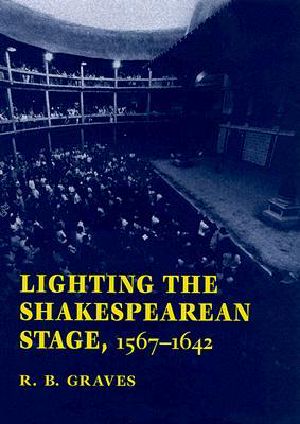Lighting the Shakespearean Stage, 1567 - 1642

- Authors
- Graves, R.B.
- Publisher
- Southern Illinois University Press
- Tags
- test
- ISBN
- 9780809322756
- Date
- 1999-12-08T00:00:00+00:00
- Size
- 1.75 MB
- Lang
- en
R. B. Graves examines the lighting of early modern English drama from both historical and aesthetic perspectives. He traces the contrasting traditions of sunlit amphitheaters and candlelit hall playhouses, describes the different lighting techniques, and estimates the effect of these techniques both indoors and outdoors.
Supporting recent scholarship, Graves demonstrates that the conventions of indoor and outdoor illumination are remarkably similar. In addition to providing new evidence, Graves makes use of experiments conducted at the "new" Globe in Southwark, London, and in various Tudor halls.
Graves discusses the importance of stage lighting in determining the dramatic effect, even in cases where the manipulation of light was not under the direct control of the theater artists. He devotes a chapter to the early modern lighting equipment available to English Renaissance actors and surveys theatrical lighting before the construction of permanent playhouses in London. Elizabethan stage lighting, he argues, drew on both classical and medieval precedents.
Analyzing the effect of the weather on theater lighting, Graves traces the history of performance times in the open-air Elizabethan, Jacobean, and Caroline theaters. He reconstructs the lighting of the amphitheaters by considering the size and shape of the playhouses, the orientation of the stages within the open-air yards, and the presence of roofs shading the stage.
Examining the natural lighting of indoor private playhouses, Graves takes note of performance times and the size and placement of windows to evaluate the amount of daylight available in various hall playhouses. He contrasts the natural light with the artificial light produced for the Court masques. Few of the special effects common in Court performances, however, were used in the production of plays.
Considering the placement and manipulation of lighting instruments, Graves reconstructs the artificial lighting at the professional indoor hall playhouses. He discusses the artificial light at the Salisbury Court and Cockpit-in-Court playhouses and maintains that even though one might expect otherwise, the use of hand-held property light was essentially the same indoors as outdoors.
Graves concludes by focusing on the overall visual effect in a scene from Webster's Duchess of Malfi.